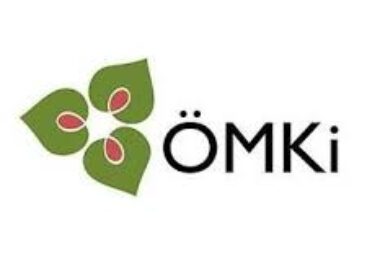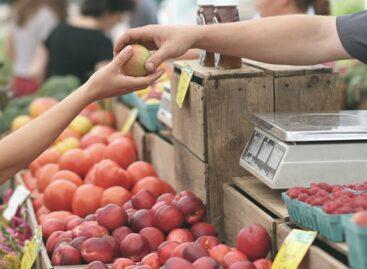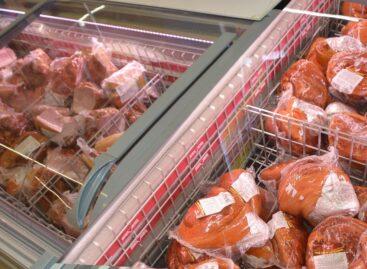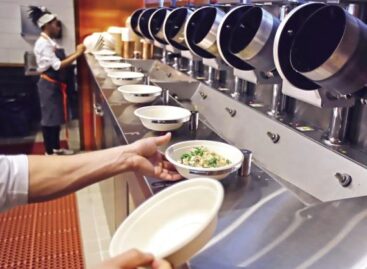Quality is assured – even at the time of pandemic!
The coronavirus pandemic forced executives to rethink their business plans and make changes if necessary. Quality assurance and food safety regulations keep changing, and this requires flexibility and rapid reaction from companies.

Nándor Pápay
food business development expert
SGS Hungária
Nándor Pápay, food business development expert of SGS Hungária Kft. differentiates between two main job types they are asked to do for the food industry. Food companies typically build quality management systems that comply with the requirements of their market countries. In Hungary the IFS standard dominates among retail chains: from the nearly 450 audits SGS Hungária did in 2020 the biggest part was IFS standard based audits. The other type of task is supplier audits commissioned by retail chains. Large companies kept introducing quality assurance systems for their private label products. SGS Hungária performs hundreds of such 2nd-party audits every year.

Tamás Vadasi
food safety business unit manager
Wessling Hungary
Tamás Vadasi, food safety business unit manager of Wessling Hungary Kft. told: when people started panic-buying in the spring, there were periods when certain basic groceries and disinfectants weren’t available in shops. Demand increased for food products with a long shelf life. Mr Vadasi’s experience is that the majority of companies have commenced cutting costs, which had an impact on product innovation work and on certain less essential aspects of product quality testing as well

Attila Papp
senior food safety auditor
TÜV Rheinland InterCert
Attila Papp, senior food safety auditor of TÜV Rheinland InterCert Kft. spoke about how standard owners gradually developed and introduced various forms of remote inspection in the spring. He revealed that ever since the COVID-19 pandemic broke out, new rules and regulations are being introduced basically every day. TÜV Rheinland keeps educating workers and subcontractors about these, at the same time also informing partners about the company’s new solutions.

Krisztina Vatai
business development director
GS1 Magyarország
Krisztina Vatai, business development director of GS1 Magyarország talked to our magazine about how the surge in demand for the home delivery of groceries created new risks, e.g. ensuring there is a cold chain, transporting groceries that aren’t pre-packaged, etc. She thinks one of the key steps forward will be data sharing between complete supply chains. GS1-standard solutions can be used to improve such methods and to cut costs and resource needs.
Prevention has become important
Attila Papp reckons that introducing the 7th version of the IFS standard will result in new challenges for food companies. From 1 July 2021 certification or renewal audits can only be performed based on IFS 7. Krisztina Vatai is of the opinion that those food companies that will be among the first to communicate the transparency of their own supply chains with a strong marketing campaign are going to have a competitive advantage.
Nándor Pápay predicts that the next few years will be about sustainability in the food industry too. He explained that several retail chains had already communicated these types of undertakings of theirs to suppliers. Tamás Vadasi informed us that the coronavirus pandemic generated demand for services that can contribute to prevention, e.g. testing the effects of disinfectants, detecting coronavirus in the air, on various surfaces and in sewage water.
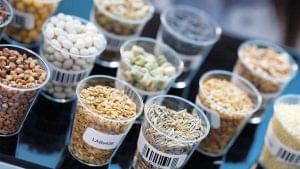
Since the outbreak of the COVID-19 pandemic, new standards heavily affecting the market are put in place on a daily basis
Swift reaction is essential
SGS Hungária has recently opened a new laboratory in Budapest – in addition to the one in Nyíregyháza – so they can now take and process samples faster. Besides analysing, the company’s experts also help partners with consultancy, market eligibility tests, marking inspections and online courses.
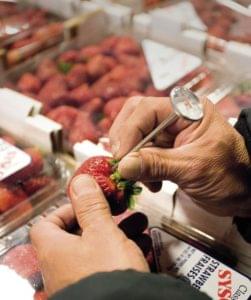
Consumers want to have more and more information about the food they eat
GS1 Magyarország has compiled a collection of case studies on the introduction of GS1-standard based solutions all over the world. They can also provide food companies, universities and various authorities with knowledge on how the different members of the supply chain can automate the collecting and sharing of tracking information. In 2015 the company signed an agreement with the Ministry of Agriculture for launching the National Food Tracking Platform; as part of this GS1 developed tracking guidelines for companies.
TÜV Rheinland InterCert Kft. offers system certification services and food safety system standard based certificates to businesses. The TÜV Rheinland Academy organises courses related to food safety certification for the representatives of companies.
Wessling has managed to react quickly to the new-type market needs. They can now offer most of their services with a shorter deadline than before and developed large capacity for coronavirus detection work. //
Related news
Organic Agricultural Research Institute: Hungarian apples are safe
🎧 Hallgasd a cikket: Lejátszás Szünet Folytatás Leállítás Nyelv: Auto…
Read more >Producers are being attacked without reason – Hungarian apples are healthy and safe
🎧 Hallgasd a cikket: Lejátszás Szünet Folytatás Leállítás Nyelv: Auto…
Read more >Related news
The Year of the Horse – Culinary trends in 2026
🎧 Hallgasd a cikket: Lejátszás Szünet Folytatás Leállítás Nyelv: Auto…
Read more >


